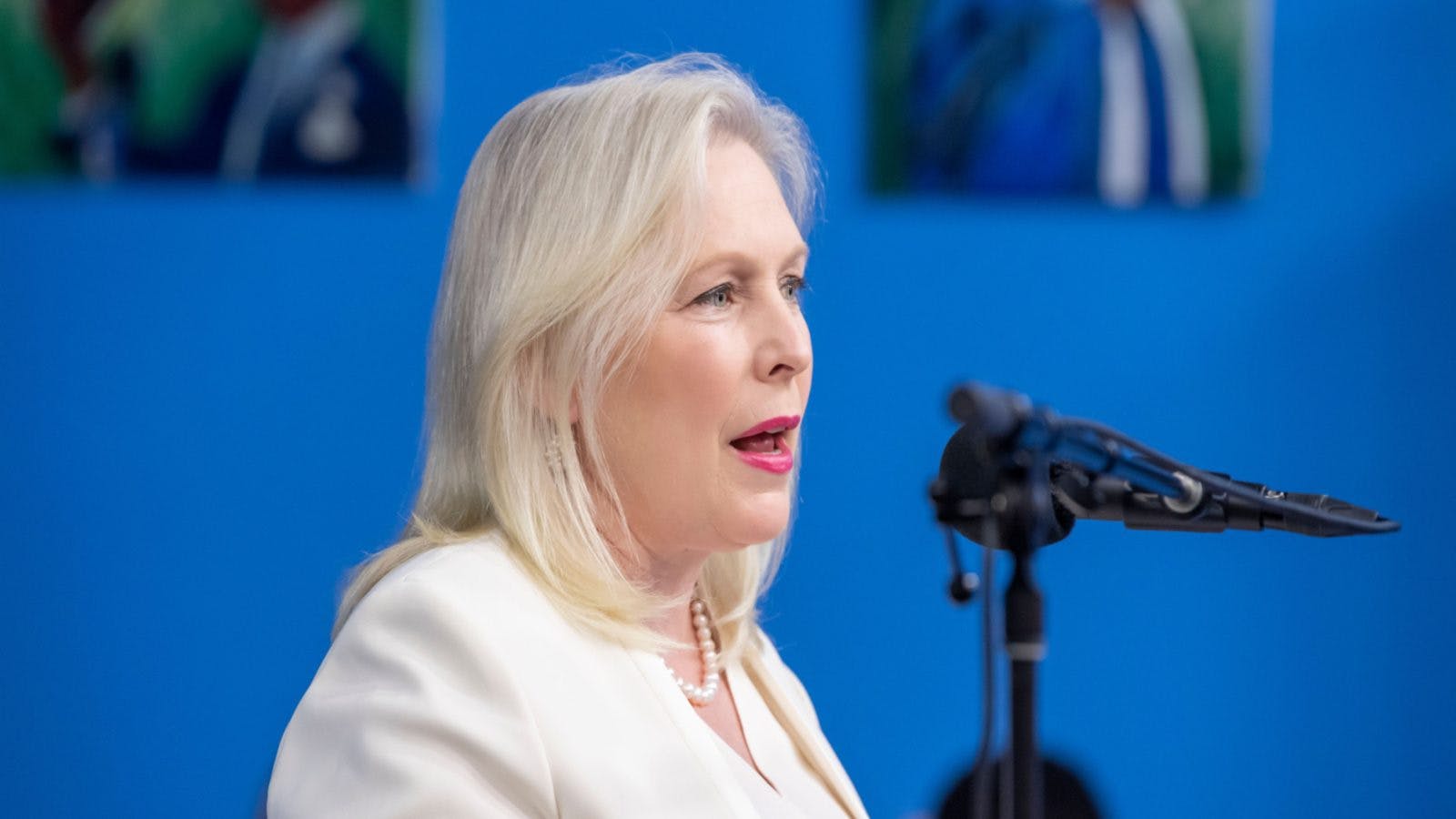Bipartisan Crypto Bill Hits Congress With Focus on CFTC Jurisdiction, Taxes
The wide-ranging bill addresses stablecoins, DAOs, and requirements for digital asset exchanges

New York Senator Kirsten Gillibrand | Source: Shutterstock
- Sens. Lummis and Gillibrand are confident their bipartisan digital asset policy will resonate with senators on both sides of the aisle
- The 69-page bill includes new rules around stablecoins that would exclude algorithmic stablecoins such as Terra
A long-awaited US digital asset bill was introduced Tuesday, setting the stage for conversations centered around the likes of stablecoin regulation and taxation — as well as what regulator should oversee cryptocurrency.
Sens. Cynthia Lummis, R-Wyo., and Kirsten Gillibrand, D-N.Y., co-sponsored the bipartisan initiative.
The Responsible Financial Innovation Act focuses on clarifying the roles of different regulatory bodies, increasing stablecoin oversight, and eliminating taxes on cryptocurrency transactions of less than $200.
The crypto bill, dubbed the Lummis-Gillibrand bill for short, also pushes back the applicable date for defining a broker dealer — a key friction point in the 2021 infrastructure bill — to Jan. 1, 2025.
The 69-page legislation includes new rules around stablecoins, which have been a popular — albeit contentious — topic on the Hill since Terra’s collapse in May. Lummis and Gillibrand propose that stablecoins be defined as any token backed by one or more financial assets, but not any other digital assets, which would exclude algorithmic stablecoins, such as Terra.
The language defines many crypto tokens as “ancillary assets,” or an “intangible, fungible asset that is offered, sold, or otherwise provided to a person in connection with the purchase and sale of a security through an arrangement or scheme that constitutes an investment contract.”
Such assets would fall under the Commodity Futures Trading Commission’s (CFTC) jurisdiction, as opposed to the SEC, unless ruled otherwise by a court.
“The ongoing turf war among federal regulators for oversight of the sector has been a hindrance to the industry’s growth potential, and has also made rolling out regulation inefficient and slow,” David Carlisle, head of policy and regulatory affairs at Elliptic, told Blockworks.
“By placing most supervisory authorities under the CFTC’s remit, the bill will help to streamline the currently fragmented regulatory landscape and will put the US in a better position to both foster innovation while ensuring more effective regulatory oversight.”
Bitcoin and ether, which Lummis and others have asserted are commodities, are not explicitly mentioned. However, the legislation stipulates that revenue from mining and staking activities needn’t be included in a taxpayer’s gross income calculation until the assets earned from such activities are sold.
Gillibrand and Lummis propose assets subject to extensive disclosures could avoid the requirements if the token issuer becomes decentralized — that is, if the issuer’s “entrepreneurial or managerial efforts” are not what “primarily determined the value” of the assets.
The crypto bill has, so far, received positive feedback from industry members, many of whom have advocated for greater regulatory clarity.
“Of primary importance is the bill’s ancillary assets provision, which updates our laws to provide a sensible pathway forward for token treatment in the US,” said Michelle Bond, CEO of the Association for Digital Asset Markets. “If passed, the senators’ approach will create jobs in the US, provide business certainty and protect consumers.”
The legislation, which has been in the works for over a year, is the first comprehensive cryptocurrency framework to make it to Capitol Hill, Gillibrand said in a statement.
“Our bill does include some of the [same] provisions as some of the other House and Senate bills, but no other bill endeavors to create a regulatory framework for the whole industry,” Gillibrand said in May at the DC Blockchain Summit. “Most other bills are small, discreet and one-idea bills.”
The crypto bill next moves into committee. Gillibrand serves on the agriculture committee, which has oversight over the CFTC, and Lummis serves on the banking committee, which oversees the SEC.
“We applaud the bipartisan efforts by Senators Lummis and Gillibrand to put forward an approach to crypto market regulation that tries to balance innovation with consumer protections,” Sam Bankman-Fried, CEO of crypto exchange FTX, said. “FTX looks forward to the discussions this legislation will contribute to in the Congress and elsewhere.”
Get the news in your inbox. Explore Blockworks newsletters:
- The Breakdown: Decoding crypto and the markets. Daily.
- 0xResearch: Alpha in your inbox. Think like an analyst.






